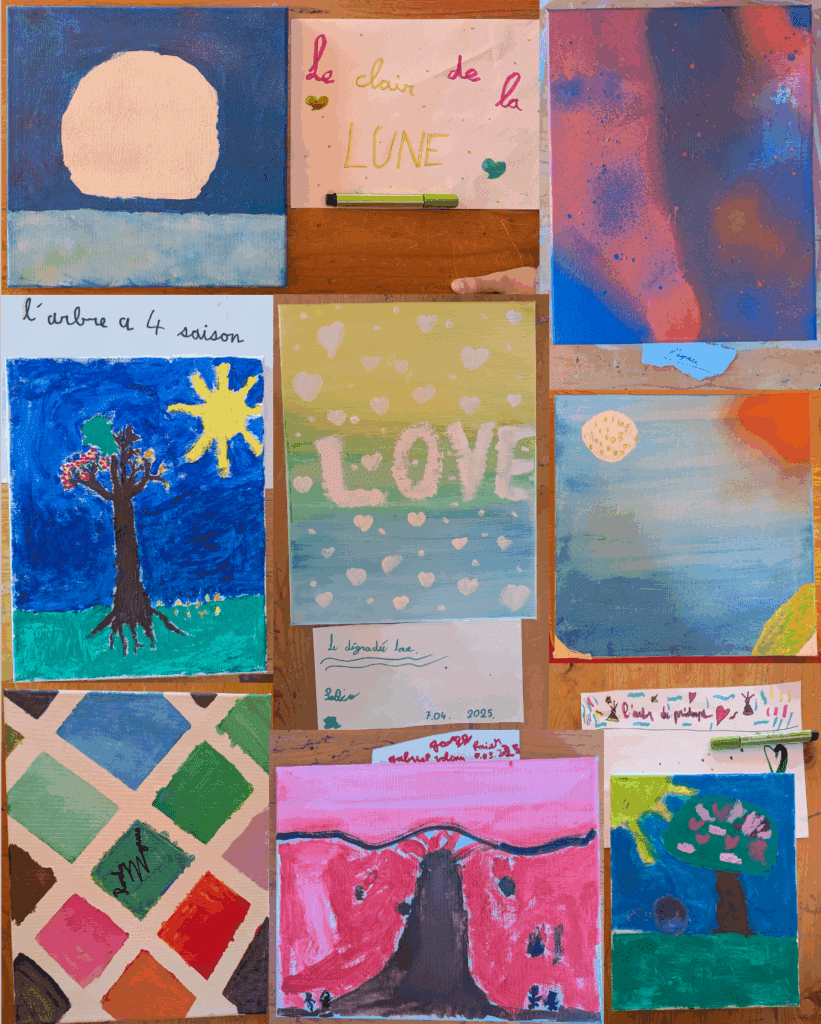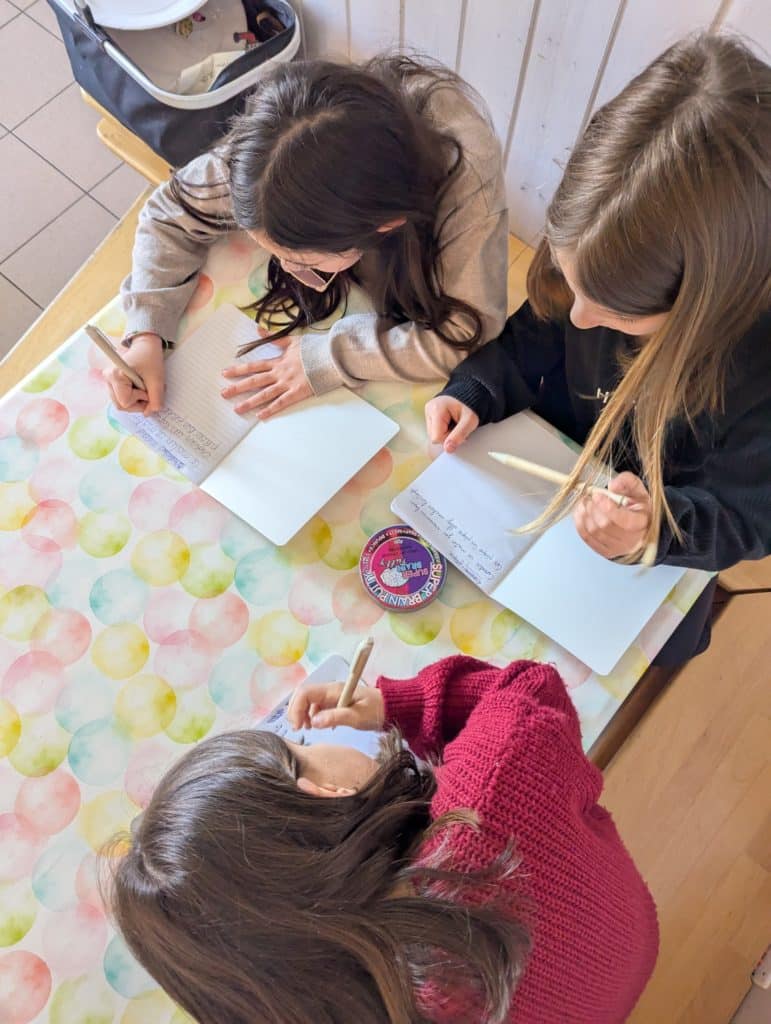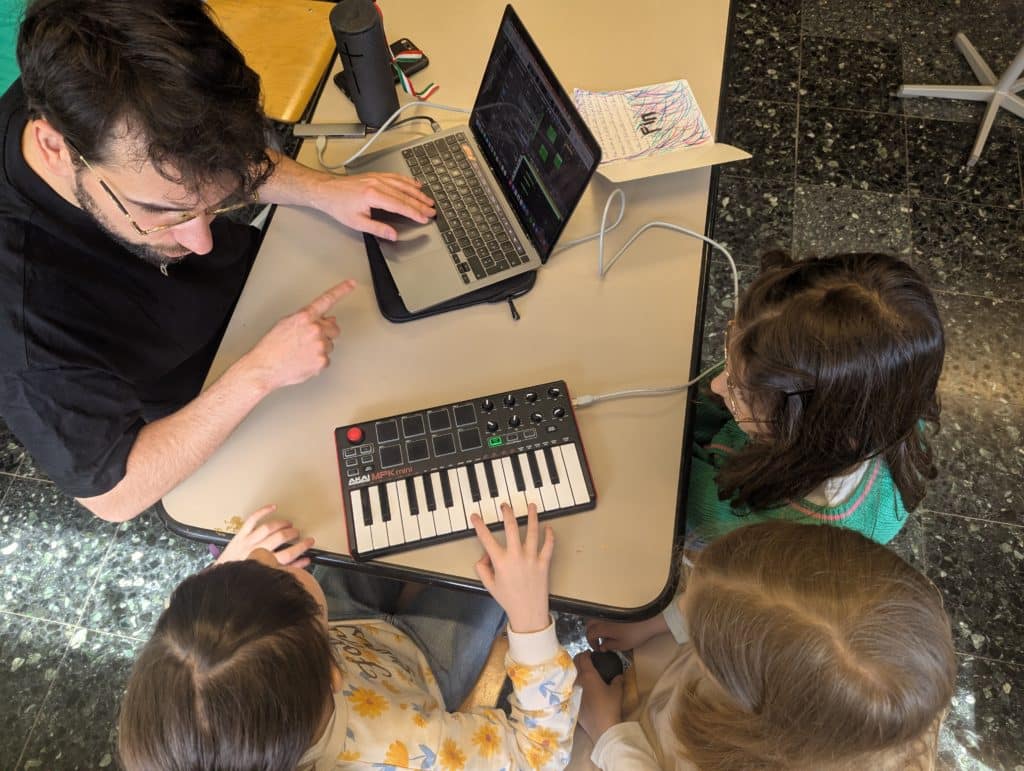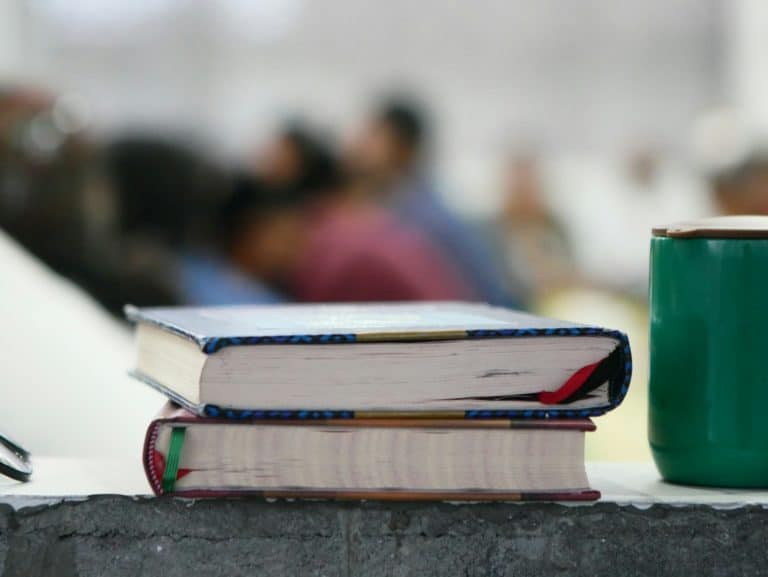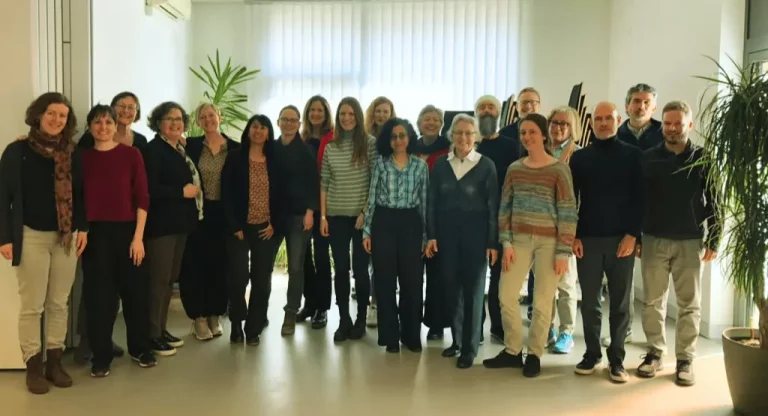Et si on apprenait à bien vivre ensemble comme on apprend à lire ou à compter ?
C’est le pari de notre projet d’éducation à la paix, mené dans les structures parascolaires de l’école primaire genevoise. À travers des ateliers artistiques, des jeux coopératifs et des espaces de dialogue innovant, nous accompagnant les enfants dans l’exploration de leurs émotions, de leurs relations aux autres et des façons de gérer les conflits de manière non-violente. Loin d’être un supplément d’âme, la paix s’apprend, se pratique et se construit dès le plus jeune âge. Plongée au cœur de cette initiative qui donne aux enfants les clés pour vivre ensemble autrement.
Depuis la rentrée de janvier 2025, Helpcode Suisse met en œuvre le projet « Éducation à la paix, à travers diverses formes d’art, pour la cohésion sociale dans le contexte scolaire », en partenariat avec l’école de paix de MonteSole, EduCoop et le GIAP. Notre équipe intervient dans les temps parascolaires de plusieurs écoles primaires du canton de Genève. A travers des cycles d’ateliers, les enfants participent à des activités ludiques et créatives qui stimulent le développement de compétences sociales essentielles au bien vivre ensemble comme le respect, la tolérance, la coopération, et la gestion non-violente des conflits.
Une pédagogie basée sur l’expérience
Dans chaque atelier, le jeu devient un outil d’apprentissage. Jeux de mouvement, jeux coopératifs, théâtre, musique, arts plastiques : autant de moyens de favoriser la prise de conscience de soi et des autres, stimuler l’empathie et renforcer la cohésion sociale. Les enfants ne reçoivent pas de « leçons de paix » : ils la vivent, la ressentent et la construisent ensemble !
Une approche participative, au plus près du vécu des enfants
Les activités sont adaptées aux besoins et aux dynamiques spécifiques de chaque groupe d’enfants (environ une quinzaine de participants par groupe, reparti en fonction de l’âge). En observant et en écoutant leurs expériences, leurs préoccupations et leurs envies, Helpcode co-construit les ateliers avec les enfants pour qu’ils soient le plus pertinents possibles. C’est dans cet espace de confiance que peuvent émerger des dialogues sincères sur les tensions du quotidien et des pistes pour les dépasser ensemble.
Des premiers résultats encourageants
À l’issue de ces deux premiers cycles d’intervention, les équipes d’animation Helpcode a fait part de retours positifs. Au-delà de la découverte de nouveaux outils pédagogiques, certain.e.s ont évoqué comment leur approche avait nourri leur réflexion sur leur manière d’accompagner les enfants au quotidien. Helpcode est bien conscient que construire une culture de la paix demande du temps et s’inscrit dans un travail de fond.
À leur échelle, ce projet vise à contribuer à ce processus, en proposant aux adultes encadrants (éducateurs, animateurs, enseignants, parents) des outils concrets pour encourager l’écoute, la coopération et le dialogue, tout en luttant contre les discriminations, le harcèlement et les conflits dans l’environnement scolaire. Un pas après l’autre, avec écoute, compréhension et créativité, Helpcode espére semer quelques graines pour une école et une société plus apaisée, inclusive et bienveillante.
